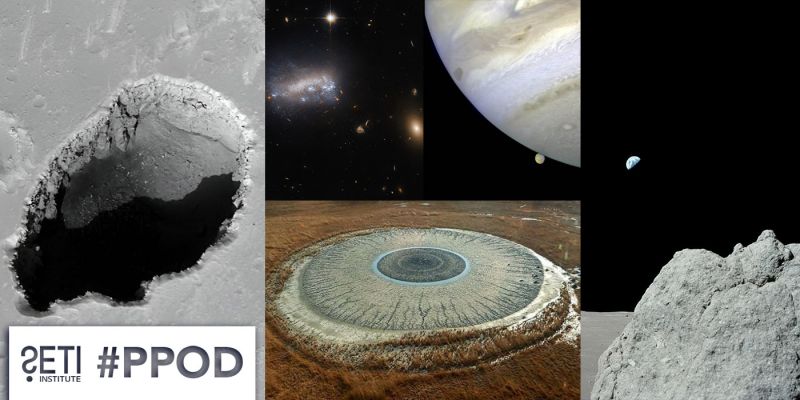
It’s entirely possible that in the next decade or so, you will see a headline telling you that NASA has found evidence for life in space. Would that news cause you to run screaming into the street?
According to the British Sunday Telegraph, the Director of NASA’s Planetary Science Division apparently thinks it might. The broadsheet’s report on recent comments by Dr. Jim Green suggests that the public might be distraught, distressed, and discombobulated by a discovery of biology beyond the bounds of our own planet.
But that’s not really what Dr. Green meant. He wasn’t worried that the populace would panic, but that our follow up was unclear.
The back story is this: In 2020, Mars and Earth will once again be relatively close to one another. To take advantage of this fortuitous orbital circumstance, space agencies will be lobbing a small brigade of spacecraft towards the Red Planet. Unlike the robotic explorers that are currently prowling Mars’ dusty landscapes, these new craft – launched by both NASA and a European-Russian collaboration – will be engaged in a type of reconnaissance that hasn’t been tried since the Viking Landers set down there in the mid-1970s. The new craft will go beyond merely scouting for locations that were once suitable for life. They’ll be on the hunt for life itself. Dead or alive.
It is the imminent dispatch of these new robotic explorers that prompted Dr. Green’s remarks that we might learn of life on Mars within a few years. But he wasn’t saying that news of extraterrestrial life would inevitably disquiet the public. We know it won’t because, after all, we ran that experiment more than two decades ago.
In 1996, the blockbuster science news story of the year was a claim that fossilized martian microbes had been found in a meteorite known to be a hunk of ancient martian regolith. The meteorite – ALH 84001 – was a small sample of Mars that seemingly contained shadowy corpses of ancient microbes.
This was a huge story, but the public’s reaction was as calm as the dawn. Folks just wanted to know more. Sadly, the martian meteorite story changed as the evidence was examined by other researchers. The argument for ancient microbes on the Red Planet was weak.
However, the point is that the public found this story intriguing, but not alarming. It was about life on Mars yes, but bacteria-like life – and long-dead, at that.
But what if we find extant life on Mars, for example a layer of bustling bacteria lying several meters below Mars’ sterile surface? What would we do? Would someone tell Elon Musk to put his planned excursions to Mars on hold because the planet has an indigenous population?
Clearly, this is a scenario for which we’re really not ready. Even if the new Mars robotic explorers only find evidence for a biota that went extinct billions of years ago, it’s not clear we have a battle plan for the science we’d want to do next. Dr. Green’s admonition applies: Unlike the Boy Scouts, we’re not quite prepared.
Of course, you could say that the Spanish court was unprepared for the discovery of a new world in 1492, and it too improvised its response. But the hope is that we can do better in the case of finding evidence life on Mars because, after all, we can see it coming.
And then there’s this: For many people, the term “Martians” calls to mind intelligent beings, usually with a less-than-sympathetic attitude to Earthlings. For these folks, a statement that “we’re not prepared for a discovery of life on Mars” sounds like a worrisome deficiency in military preparedness.
Well, for anyone familiar with the actual conditions on Mars, this is a silly concern. There are no civilized species on the Red Planet, and no evidence that there ever were. If Martians are hunkered down on our little ruddy buddy, you’ll need 40x magnification to see them. They’re not coming to Earth unless we pack ‘em up and haul ‘em back in our rockets.
In addition, a recent study done at Arizona State University shows that the majority of people would welcome intelligent aliens. Apparently they think it probable that such beings would be friendly. Thanks, E.T.
Obviously whatever steps we should take if Martians are found is still uncertain. As Dr. Green says, “what we will do next depends on what we find first.”
But this much is for sure: A discovery that Mars has, or had, life would be enormously significant. It would be evidence that life is a process that begins on many worlds and consequently that the universe is brimming with biology – an idea that, as of now, is no more than an appealing hypothesis.





